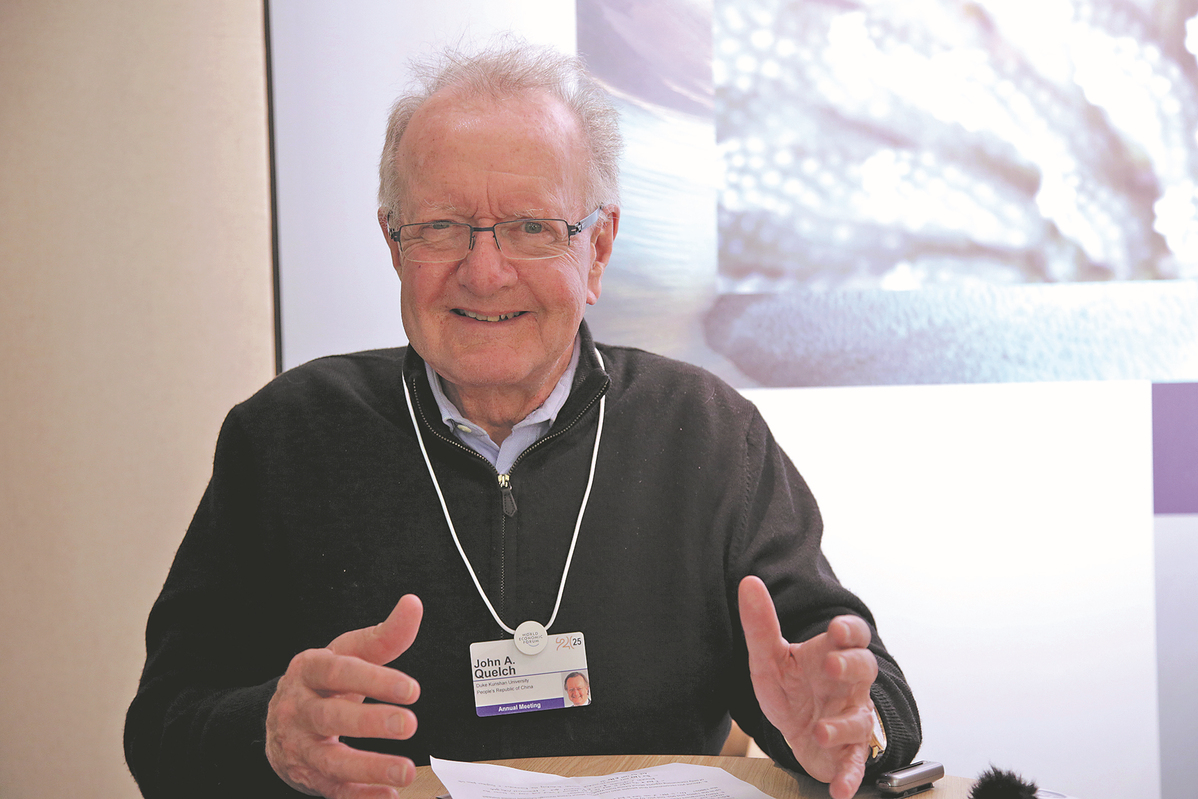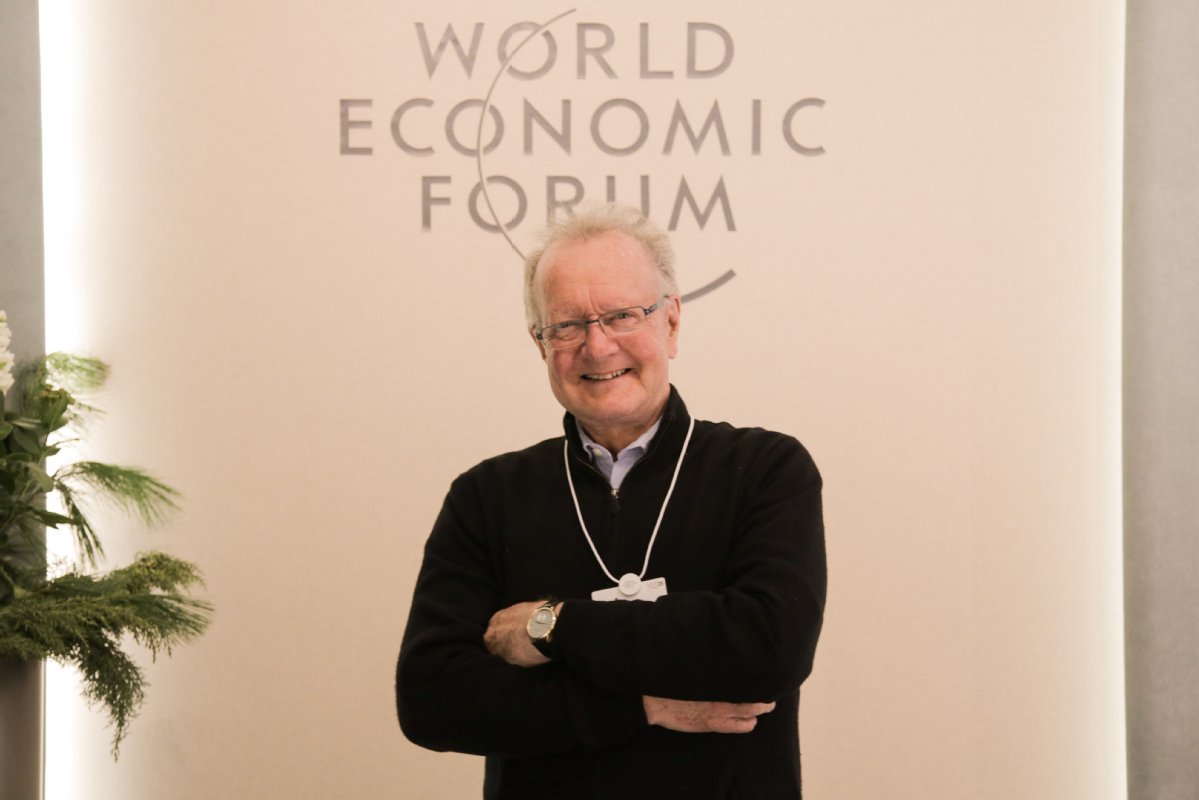
Cross-border collaboration in scholarship and idea generation should remain unabated despite efforts to decouple supply chains, said an education expert on Tuesday at the World Economic Forum's annual meeting in Davos, Switzerland.
"Now there is a growing focus in the United States on managing scholarly collaborations between US and Chinese universities and scholars. However, it is important that the decoupling of manufacturing supply chains does not extend to the decoupling of educational supply chains," John Quelch, executive vice-chancellor of Duke Kunshan University in Jiangsu province, told China Daily.
"In other words, cross-border exchanges, people-to-people exchanges, and scholarship should be, as always has been, international in scope," he said. Quelch's university is itself a joint project between Duke University in the US and China's Wuhan University.
Having served as dean of three leading business schools and as a professor at Harvard Business School for more than 30 years, Quelch pointed out that scholars always want to collaborate, and will collaborate.
"Putting a brake on the free flow of people-to-people exchanges or the free flow of ideas is not healthy for global prosperity, which will benefit from rapid and efficient collaboration across national boundaries," he said, adding that this year's World Economic Forum meeting is themed around collaboration.
Despite challenges, Quelch expressed optimism about educational, cultural and people-to-people exchanges between China and the US, stating that even "if a commercial rivalry results in tougher tariffs and more decoupling in economic terms, educational and cultural exchanges will continue and people will value them even more".
Mutual learning
Quelch said Duke Kunshan University is a good example of mutual learning and cultural exchange, not only between China and the US but also between China and the world, with two-thirds of its non-Chinese students hailing from 70 countries, half of which are from the Global South.
He said he greatly appreciates China's initiative to invite 50,000 US youths for exchange and study programs over five years from 2024.
His university organized a 10-day Chinese immersion program last year for 70 US undergraduate students in cooperation with Jiangsu province's education department.
"We are trying to do the best that we can to bring more American students to China, but also non-Americans," Quelch said, adding that China's economic success and the Belt and Road Initiative have attracted many students from developing countries to study at his university.
"True breakthroughs are often made at the intersections of multiple disciplines and intercultural exchanges," he said.

John Quelch, executive vice-chancellor of Duke Kunshan University, in Davos, Switzerland on Jan 20, 2025. [Xing Yi / China Daily]